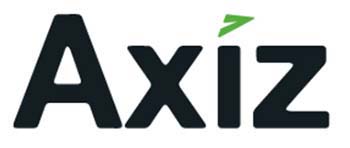The Covid-19 pandemic could be the event that levels the education playing fields in South Africa – or it could be the cataclysm that widens an already significant digital divide and irreparably damages the majority of our young people.
 This is the warning from Annelee Le Grange, General Manager for HP Inc at Axiz, who points out that that the inequality of education is in danger of becoming a permanent feature in our landscape.
This is the warning from Annelee Le Grange, General Manager for HP Inc at Axiz, who points out that that the inequality of education is in danger of becoming a permanent feature in our landscape.
She points to the fact that the 2020 lockdown experience was vastly different for the small number of privileged South Africans compared to the majority, Le Grange says.
For instance, most private schools – where learners have access to laptops and connectivity, and teachers are well-resourced – didn’t miss a beat.
“But then you have the rest of South Africa: the kids in underdeveloped areas, those without connectivity at home, who have to share devices or connect at Internet cafes; and teachers with limited resources. There is a big level of inequality that we have to deal with.”
While 2020 was hard for learners, students and educational institutions, we can’t expect 2021 to be any better, Le Grange warns.
“We can expect that at least two years of schooling is going to be interrupted. Some schools will get the help they need, but many won’t.”
In the long run, however, remote learning will become a reality, with technology playing a bigger role in education, a lot quicker than it might have otherwise.
While it’s vital for learners to have devices and access, teachers must also have access to the tools that will help them to teach regardless of where their pupils are.
“We have to urgently get teachers the tools they need to be prepared to school these kids though the pandemic,” Le Grange points out. “Because how well they do their job will determine how an entire generation turns out.”
A less visible but equally important part of technology in education revolves around the administrators, who need to develop relevant curricula and standards, and ensure they are rolled out across the country.
Then there is the role of government, where a lack of funds and the slow pace of execution are hampering efforts to bring technology solutions to bear on the education problem.
With technology positioned as a key enabler, the important thing is to make a start, she adds. “The first step should be to make the technology available – the rest will flow from there.
“We need to fast-track the process by getting a laptop or other device into every home where there is a child; making connectivity available; and getting teachers to a point where they can teach the curriculum to remote learners.
“The rest will follow once kids have a device and access.”
Partnering for success
Le Grange believes the way to ensure technology gets to the right recipients is through strong public-private partnerships (PPPs), where government, local authorities, districts and schools work together with the IT industry to get the basics in place.
HP Education Solutions provide access to the content, curricula, and collaboration needed to enable true learning, helping to deliver meaningful outcomes for students, schools and communities.
For learners, solutions include Windows laptops, Chromebooks, desktops, workstations, devices and accessories; and printers. All Education Edition devices endure rigorous durability testing via HP‘s Total Test Process prior to being awarded the coveted “EE” designation.
To ensure that learning isn’t interrupted, all Education Editions devices meet strict battery life requirements to enable more discovery, collaboration and creativity. And, with advanced 2×2 antenna array with the latest 802.11ac technology, the devices help to ensure students stay connected.
For teachers, Education Editions incorporate apps and software to empower them with the teaching tools they need to ensure their students get an equal chance to succeed, whatever their learning style.
HP Classroom Manager 4.0 allows teachers to control and monitor student progress through a user-friendly virtual environment, while School Pack 4.0 is designed to minimise online distraction for students, aids and teachers while automating management for facilitators.
“It is important to ensure that online learning enables the right kind of attention from teacher to learner, and from learner to teacher,” Le Grange explains. “And this is what the HP Education Essentials offerings does.”
Axiz has a key role to play in helping schools, colleges and universities to become technologically-enabled. Having recently been awarded the Channelwise Distributor of the year confirms Axiz’ s proud legacy and ability to adapt to market demand.
“We offer more than just the supply chain, which boasts a national footprint and the ability to roll out technology across the country,” Le Grange says. “We also have access to HP’s full range of Education Editions products and programmes.
“At Axiz, we are working with partners that have a differentiated value proposition,” she adds. “Our role is to bring the technology to our education partners, and assist them in getting it to the customer. We take these solutions to marketing with our partners by acting on their behalf and with them.
“We have the people and the skills right here who understand how the programmes work, how HP works, and how to fulfill the customers’ requirements.”
Axiz is accredited by the State IT Agency (SITA) and is a Level One Broad-Based Black Economic Empowerment (B-BBEE) contributor, which is a massive bonus for partners, Le Grange points out.
HP Education partners are accredited by HP, after undergoing a strict evaluation and vetting process; and are then accredited by Axiz once all checks are performed.
She adds that there is massive pent-up demand for technology solutions in the education space, so Axiz and its partners are gearing up to ensure they are able to meet and exceed expectations.


